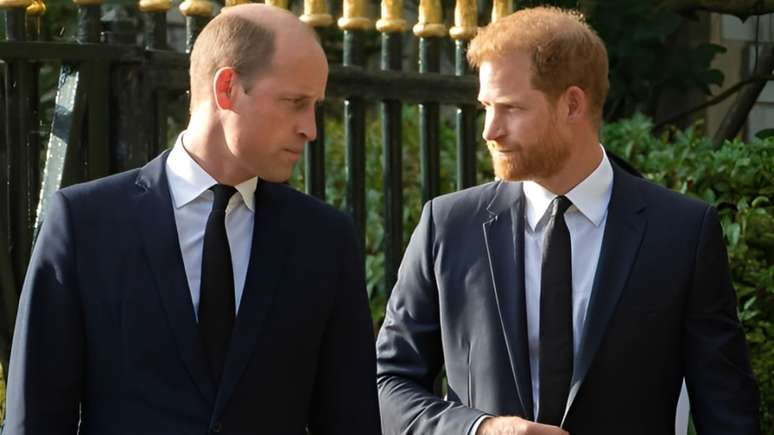From red meat to tofu, find out now which foods anemic people should always have on their menu.
Summary
In addition to iron, the diet for those suffering from anemia should include zinc, vitamin C and vitamin B12. In this context, the diet must be rich in nutrients to fight and recover this clinical condition.
If you suffer from anemia, you’ve probably heard someone say that you need to eat foods containing iron. But in case only iron is present nutrition for anemia to solve this problem?
Well, in addition to a diet rich in iron, it is necessary to include other nutrients, such as zinc, vitamin C and vitamin B12, in the menu of a person suffering from anemia.
Therefore, the diet of a person suffering from anemia must be rich in nutrients that will help him fight and even recover from this clinical condition.
In this article, we will show you dietary tips for anemia that will help those suffering from this disease lead a healthier life.
Read on to find out more!
What is anemia?
Anemia is classified by the World Health Organization as a clinical condition. It happens when the number of red blood cells in the blood is lower than normal or these blood cells are functioning dysfunctionally.
These blood cells are responsible for transporting oxygen from the lungs to the rest of the body. Therefore, when they are missing or functioning in an unusual way for the body, the flow of oxygen to the organs is compromised.
There are two types of anemia: acquired, which occurs due to bleeding or lack of iron in the body, and hereditary, which requires special treatment. Hereditary anemias include thalassemia and sickle cell anemia.
Some of the symptoms of anemia are tiredness, paleness, shortness of breath, dizziness and rapid heartbeat. The diagnosis of anemia is made through a blood test, in which the levels of iron and red blood cells in the blood, as well as zinc, proteins and vitamins can be analyzed.
Although it is a common disease – around 2 million people are diagnosed with anemia in Brazil every year – it is important to treat it to ensure good health for the patient.
Recommendations for treating anemia include iron and vitamin B supplementation.
Additionally, if you have blood loss, you may need a blood transfusion and even the use of medications that help form blood cells.
In addition to iron supplementation through medications, a diet with iron-rich nutrients and foods is also recommended.
11 nutritional tips for anemia
Now that you know what anemia is, how it can manifest itself, and that good nutrition is used as a treatment for this condition, it is important to know what foods to include in the diet of those suffering from anemia.
However, it is important to always remember: despite our advice, only a professional can develop an adequate diet for you, which meets all your nutritional needs and adapts to your routine to guarantee a healthy diet.
Therefore, even with our advice, look for a doctor who will advise you on how to treat your anemia.
1. Red meat
Red meat is rich in iron and vitamin B12, which are nutrients that anemic people need to improve their condition.
White meat – such as fish and chicken – also contains iron, but, as it is present in smaller quantities, it is advisable to alternate its consumption with that of red meat, which is preferable.
2. Black beans
Rich in iron, black beans are essential on the plate of those suffering from anemia.
However, you need to be careful, as this type of beans is rich in a type of iron common in plant-based foods called non-heme iron.
One of the main characteristics of this type of iron is that it is more difficult to absorb in the intestine, so it is necessary to eat black beans together with foods rich in vitamin C, which helps the absorption of iron by the intestine.
Among the foods rich in vitamin C that can be combined with black beans are oranges, acerola and guava.
3. Liver
The liver divides opinions, but it is a fact that it is the best friend of those living with anemia. Whether it is beef or chicken liver, this organ contains an amount of iron favorable to those suffering from anemia, which helps the production of red blood cells in the blood.
Despite this advantage, it is not recommended to eat liver every day: in addition to iron, it also contains heavy metals, such as lead, which can be harmful to humans.
4. Spinach
Spinach is part of the dark green leaves, known to be rich in iron and folic acid, nutrients needed to fight anemia.
Well, it is worth eating spinach raw or cooked, in juices and also as a side dish in recipes. Also, unlike liver, there is no consumption limit, so if you like spinach, feel free to consume it.
In the category of dark leafy vegetables, which are as good as spinach for those suffering from anemia, there are also broccoli, watercress, arugula, ora pro nobis and kale.
5. Egg
In addition to being the best friend of those on a diet, eggs can also be the best friend of those suffering from anemia. This is because it is rich in iron, folic acid and vitamin B12, the nutrients necessary for the formation of red blood cells in the blood.
Egg is known to be versatile and suitable for different recipes. In other words, those suffering from anemia do not need to stick to just one way of eating this food.
6. Oats
Oats are rich in iron and are also seen as a versatile ingredient, being used as an accompaniment to fruit and yoghurt, as an ingredient in breads and desserts and even for the famous oat porridge.
In other words, oats can be consumed by those suffering from anemia and the variety of recipes that can be prepared with it is advantageous to avoid repeating the menu.
7. Cocoa powder
Cocoa has good amounts of iron, which means it is a great food for those suffering from anemia. But don’t worry if you don’t like the bitterness of cocoa: dark chocolate also works as a food that fights anemia.
In other words, it’s a great dessert to include on your menu. In addition to chocolate, cocoa can also be used in desserts.
8. Tofu
Soy foods are known to contain good amounts of iron and tofu is one of them.
Since it is a food of plant origin, it can be used as a substitute for meat for vegans and vegetarians who suffer from anemia.
Tofu works well in salads and snacks and also serves as a base for preparations such as pancakes and cakes.
9. Orange
Rich in vitamin C, oranges should be consumed with foods rich in iron. This is because vitamin C is a nutrient that contributes to the absorption of iron by the intestine, helping to fight anemia more quickly.
10. Guava
The same rule applies here as for orange: guava is rich in vitamin C, which helps those who consume it to absorb iron more easily. In other words, it is important to consume it, just as it is important to consume foods rich in vitamin C.
11. Milk and dairy products
Dairy products are rich in vitamin B12 and vitamin A which, like vitamin C, contribute to the absorption of iron in the body.
But here it is necessary to dose these foods because they are also rich in calcium, which can hinder the absorption of iron if consumed in excess.
What can’t you eat when you have anemia?
Anyone with anemia should avoid consuming foods that prevent the body from absorbing iron.
Some of the foods that act in this way are soft drinks, coffee, black tea, green tea, mate tea and chocolate.
It is also advisable to avoid alcoholic drinks, which also hinder the absorption of iron.
How to improve anemia through diet?
As we saw above, consuming certain types of foods can help improve anemia.
This is because foods rich in iron contribute to the increase of this nutrient in the body, which in turn contributes to the formation and strengthening of red blood cells in the blood.
Furthermore, it is essential that foods rich in iron are consumed together with foods that facilitate its absorption, such as those rich in vitamins C and B12.
Although it contributes to the improvement of the condition, food must not be the only form of treatment: it is important that it is combined with specialized medical carewhich monitors the evolution of the anemia and provides the necessary advice to the patient.
Now that you know what is good to eat for anemia, continue to learn more about how to take care of your health at Terra Você!
Source: Terra
Ben Stock is a lifestyle journalist and author at Gossipify. He writes about topics such as health, wellness, travel, food and home decor. He provides practical advice and inspiration to improve well-being, keeps readers up to date with latest lifestyle news and trends, known for his engaging writing style, in-depth analysis and unique perspectives.









